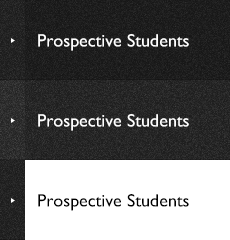Key technologies of computer science are learned through studying computer systems, software, artificial intelligence, cognitive engineering, and system development. For each of these areas, we provide an efficient systematic education that introduces students to fundamental technologies in their first year and advanced technologies in their second. Students are provided with plenty of courses that involve exercises during their study of the system development area, allowing them to acquire the advanced skills necessary to develop advanced software systems.
-
- Computer Systems
- Courses are arranged so that students can learn advanced topics ranging from hardware architecture of computer systems to system software. As they progress, students are also introduced to technologies for building large-scale parallel and distributed computing systems and high-reliability systems.
-
- Software
- Courses are arranged so that students can efficiently learn everything from cutting-edge theories that support the foundations of computer science to methodologies for developing large-scale software.
-
- Artificial Intelligence
- Courses are arranged so that students can learn applications of technology that are useful to society, such as machine learning, natural language processing, information retrieval, bioinformatics, and complex networks, as well as the underlying theories that support them.
-
- Cognitive Engineering
- Courses are arranged so that students can comprehensively learn basic theories of and technologies applied to human-computer interface and human-computer interaction.
-
- System Development
- Courses are arranged so that students can learn how to develop usable software systems through group work, and acquire basic skills that will enable them to become effective software developers.
*1 Indicates the standard model where the master's program is completed in two years.
. Any information published on this site will be valid in relation to Science Tokyo.


